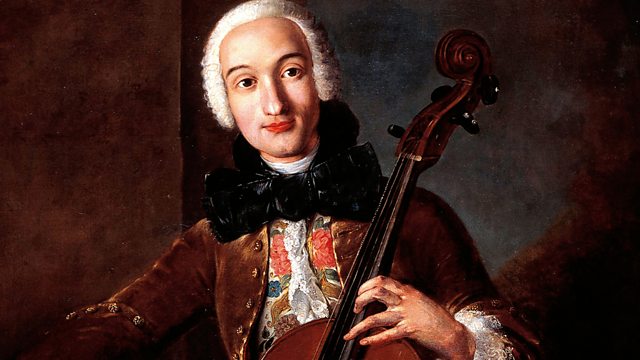
Boccherini Finds a Princely Patron in Spain
Donald Macleod focuses on Boccherini's move to Spain, where he began to work for the King's brother, writing music such as The Aviary and his first setting of the Stabat Mater.
He could number among his patrons the King of Spain, and the heir to the Prussian throne, and he composed around one hundred string quartets, and at least as many quintets, amongst other works - this week Donald Macleod looks at the life and music of Luigi Boccherini.
Whilst in Paris, Boccherini was approached by the Spanish Ambassador, who proposed that Boccherini and his friend the violinist Manfredi, might like to visit Madrid, and that the two young men would receive a rapturous welcome from the heir to the Spanish throne. Both Boccherini and Manfredi travelled to Spain, but their welcome was not what they had hoped it would be. In a bid to ingratiate himself with the Spanish Prince, Boccherini dedicated his Opus 6 trios to him, including the fifth Trio in G minor. This didn't get the Prince's attention.
Another Royal patron did however materialise, and this was the King's brother, Don Luis, whom Boccherini would go on to work for, for many years. Boccherini would compose many works dedicated to his royal patron, including sextets, quintets, and a set of symphonies, which included the third Symphony in C major opus 12. These works steadily began to establish Boccherini's reputation in Spain and further afield, in particular his set of quintets opus 11. The sixth of this set, nicknamed The Aviary, depicts Boccherini's patron's passion for exotic birds.
Don Luis would soon fall out of favour with his family and the royal court, over his marriage to a lady of non-royal blood. This soon meant that Don Luis's court would have to move far from Madrid. This isolation would influence the works Boccherini went on to compose, given the limited number of musicians to hand. However, with a visit to Arenas of a famous singer, Boccherini was able compose his first setting of the Stabat Mater.
Last on
Music Played
-
![]()
Luigi Boccherini
Duet Op. 3 No. 2 in F major: Presto Assai
Performer: Igor OZIM (Violin), Performer: Primoz NOVSAK (Violin)
- EBS 6009.
- 4.
-
![]()
Luigi Boccherini
Trio Op. 6 No. 5 in G minor, G93
Performer: Emilio MORENO (Violin), Performer: Enrico GATTI (Violin), Performer: Wouter MOLLER (Cello)
- Glossa GCD920301.
- 5.
-
![]()
Luigi Boccherini
Symphony Op. 12 No. 3 in C: 3rd and 4th movements
Conductor: Raymond LEPPARD Performer: New Philharmonia Orchestra
- Philips 4383142.
- 7.
-
![]()
Luigi Boccherini
String Quintet Op. 11 No. 6 in D (L'ucceliera)
Performer: L'europa Galante
- Opus 111.
- 9.
-
![]()
Luigi Boccherini
Stabat Mater: Fac ut potem Christi mortem - Quando corpus morietur
Performer: Agnes MELLON - Soprano Performer: Chiara BANCHINI - Director Performer: Ensemble 415
- Harmonia Mundi HMC901378.
- 9.
Broadcasts
- Wed 7 Mar 2012 12:00����ý Radio 3
- Wed 7 Mar 2012 18:30����ý Radio 3
- Wed 10 Jul 2013 12:00����ý Radio 3
- Wed 10 Jul 2013 18:30����ý Radio 3
Beethoven Unleashed – the box set
What was really wrong with Beethoven?
Composers A to Z
Who knew? Five eye-opening stories from Composer of the Week
Five reasons why we love Parry's Jerusalem
What is the strange power of Jerusalem which makes strong men weep?
A man out of time – why Parry's music and ideas were at odds with his image...
The composer of Jerusalem was very far from the conservative figure his image suggests.
Composer Help Page
Find resources and contacts for composers from within the classical music industry.





